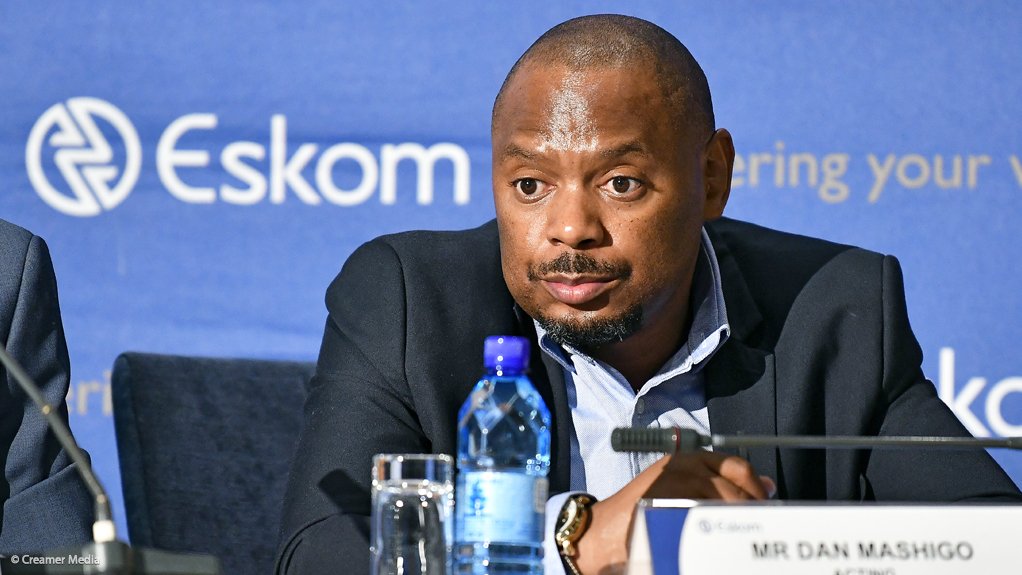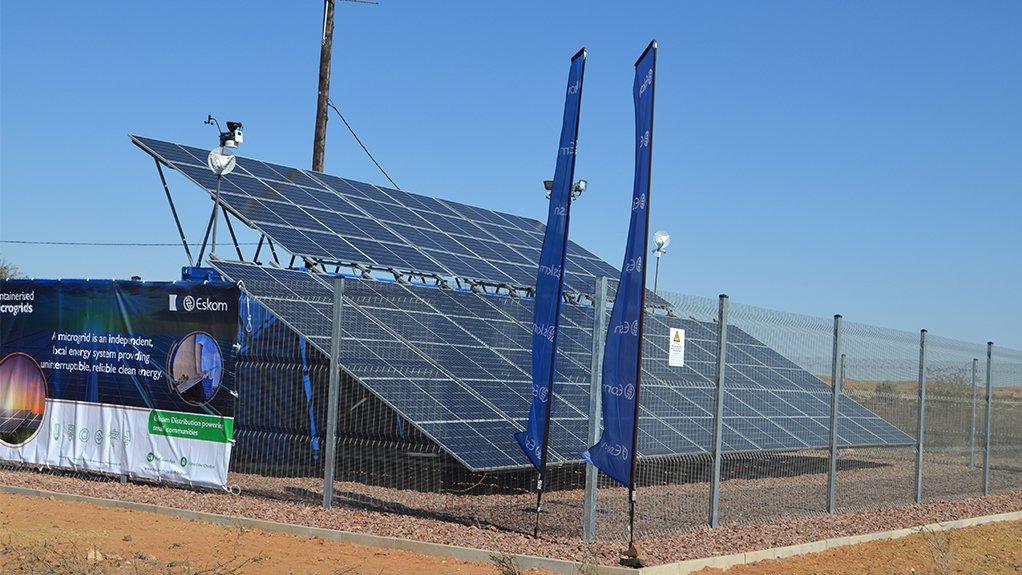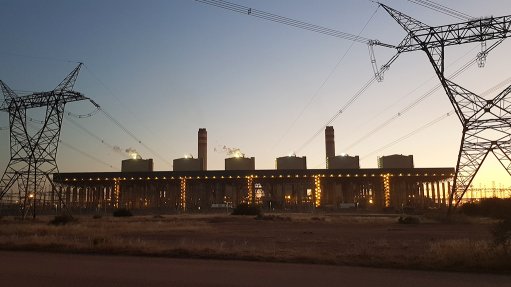No indefinite end to loadshedding – Eskom



DAN MASHIGO It would take about two to five years to fully resolve loadshedding
PURSUING ENERGY SECURITY Solutions such as microgrids can ensure energy security and widespread electricity access
While South Africa is experiencing a significant period during which there is no loadshedding, more time is needed before State-owned electricity utility Eskom can confidently declare an end to loadshedding, says Eskom primary energy GM Dan Mashigo.
Speaking at the 2024 Coal and Energy Transition Day, held at The Country Club, in Johannesburg, on July 23, Mashigo noted the progress made thus far, with a 7% to 8% year-on-year improvement from last year.
He reaffirmed that it would take about two to five years to fully resolve loadshedding, but emphasised that the improvement provided Eskom with the necessary headroom for short-term risk management, consequently enabling the entity to operate its coal fleet “within its designed utilisation envelope”, thus avoiding the previous high utilisation rates that exceeded 90%.
The progress also provides Eskom with “the breathing room” needed to focus on broader business objectives such as participating in renewable-energy projects and entering the nuclear space.
While the situation is improving, Eskom still faces significant challenges, such as navigating planned maintenance during the upcoming summer period, which will result in a significant amount of capacity going offline.
“Summer has . . . all its nuances, as we take a lot of capacity out for planned maintenance and so, hopefully, the likes of [Koeberg nuclear power station] will be back to give us [a] breather,” he added.
Mashigo underscored the importance of maximising the performance of Eskom’s current assets to achieve a 70% operational efficiency, which aligns with international best practices. This efficiency level would support a GDP growth rate of 3% to 4%, which is essential for the country’s industrialisation.
“We can’t only look at electricity stability to serve the current needs; I think we need to look at issues [. . .] such as industrialisation.”
Transitioning into the digital age demands significant energy for emerging data centres in South Africa, and achieving 70% operational efficiency will allow for the construction of new assets and grid expansion, besides others, Mashigo added.
Navigating the “Trilemma”
Mashigo referred to the issues – energy security, affordability and sustainability – that Eskom is navigating as a “trilemma” but indicated a preference for “trifecta” to highlight the opportunities they present.
To ensure energy security and widespread access, he expressed the need for solutions, such as distributed generation, smart grids and microgrids, for areas that are difficult to connect to the main grid.
“There is consensus on how significant [energy security] is, and what it means for growth and prosperity in the country.”
Further, he noted that energy affordability is key, particularly in a country with significantly high unemployment rates, and achieving universal access is futile if people cannot afford the energy.
Mashigo also acknowledged the challenge of reducing the increasing unit debt, stressing the need for political intervention to address said debt.
Cost containment, ethical practices and leadership stability are also important, as leadership stability allows for a degree of forecasting, which, in turn, affords such leadership the opportunity to deal with implementation and execution.
“I think we’ve got the plans; what is important is just to execute,” he added.
Addressing a question about when Eskom will stabilise and reduce tariff increases, Mashigo acknowledged that the trajectory of increases has been steep.
Eskom has historically operated from a very low base, owing to the way assets were valued using historical costs. However, significant capital is now required to invest in new assets, which is a major cost driver for the energy business, along with primary energy costs.
Mashigo added that cost drivers for an energy business are not necessarily linked to average inflation rates and emphasised the importance of Eskom’s achieving financial stability and clearing its debt.
While steep tariff increases are not expected to continue indefinitely, the current need for capitalisation and capital injections, possibly in the form of equity, are necessary to drive the company’s financial stability and investments in new assets, he concluded.
Article Enquiry
Email Article
Save Article
Feedback
To advertise email advertising@creamermedia.co.za or click here
Press Office
Announcements
What's On
Subscribe to improve your user experience...
Option 1 (equivalent of R125 a month):
Receive a weekly copy of Creamer Media's Engineering News & Mining Weekly magazine
(print copy for those in South Africa and e-magazine for those outside of South Africa)
Receive daily email newsletters
Access to full search results
Access archive of magazine back copies
Access to Projects in Progress
Access to ONE Research Report of your choice in PDF format
Option 2 (equivalent of R375 a month):
All benefits from Option 1
PLUS
Access to Creamer Media's Research Channel Africa for ALL Research Reports, in PDF format, on various industrial and mining sectors
including Electricity; Water; Energy Transition; Hydrogen; Roads, Rail and Ports; Coal; Gold; Platinum; Battery Metals; etc.
Already a subscriber?
Forgotten your password?
Receive weekly copy of Creamer Media's Engineering News & Mining Weekly magazine (print copy for those in South Africa and e-magazine for those outside of South Africa)
➕
Recieve daily email newsletters
➕
Access to full search results
➕
Access archive of magazine back copies
➕
Access to Projects in Progress
➕
Access to ONE Research Report of your choice in PDF format
RESEARCH CHANNEL AFRICA
R4500 (equivalent of R375 a month)
SUBSCRIBEAll benefits from Option 1
➕
Access to Creamer Media's Research Channel Africa for ALL Research Reports on various industrial and mining sectors, in PDF format, including on:
Electricity
➕
Water
➕
Energy Transition
➕
Hydrogen
➕
Roads, Rail and Ports
➕
Coal
➕
Gold
➕
Platinum
➕
Battery Metals
➕
etc.
Receive all benefits from Option 1 or Option 2 delivered to numerous people at your company
➕
Multiple User names and Passwords for simultaneous log-ins
➕
Intranet integration access to all in your organisation




















